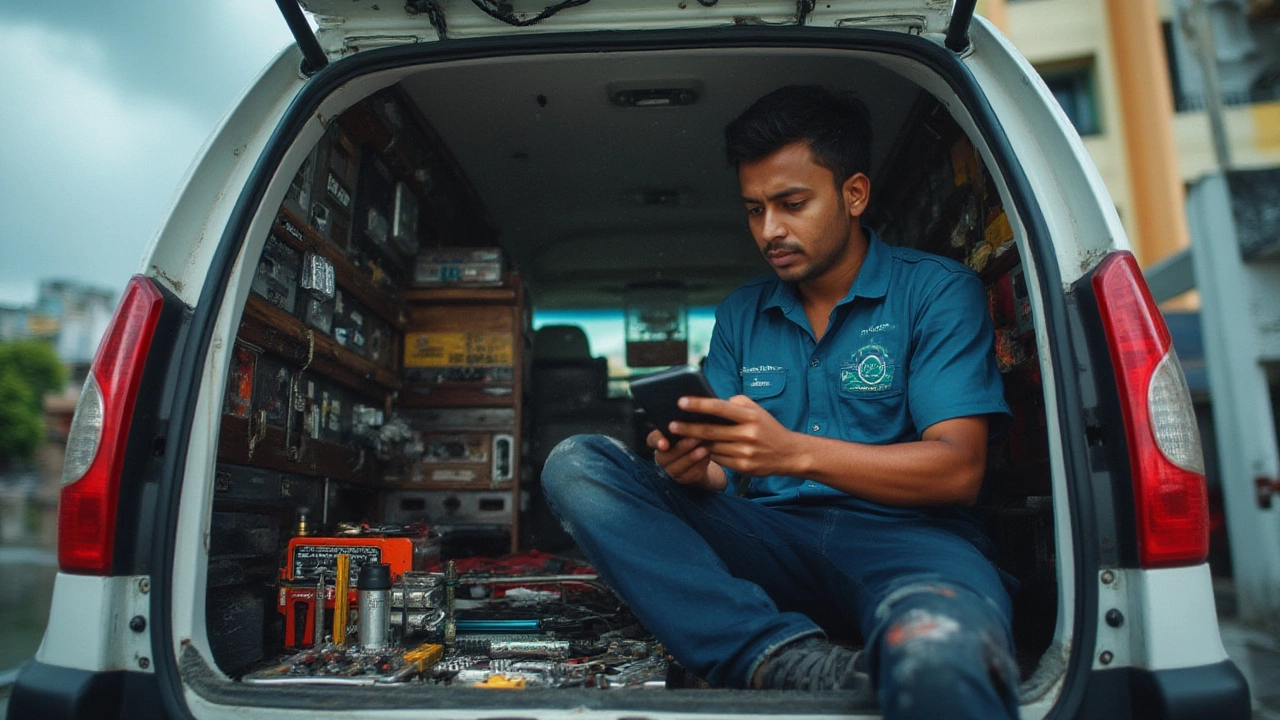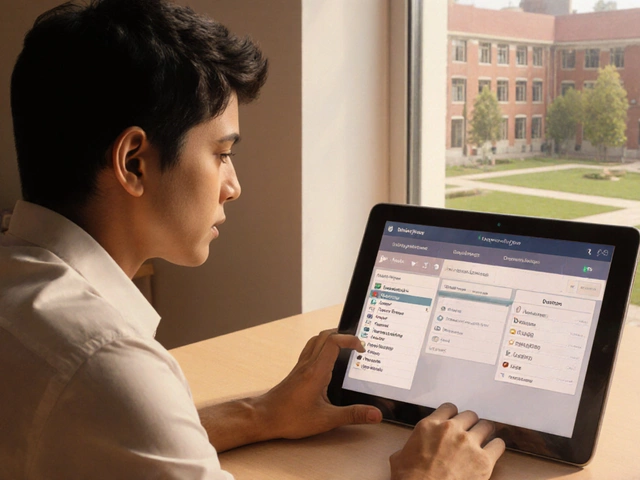
Ever stared at your front door and wondered if your locksmith’s taken a wrong turn to another city? The minutes drag, your phone battery dips, and all you want is your keys back. It’s a weird kind of limbo—like time freezes, but only for you. What’s the holdup? Is it all smoke and mirrors? Turns out, there’s genuinely interesting stuff happening on the other end. And honestly, once you peek at the real story, you might just cut the locksmith some slack next time you’re camped out on your welcome mat.
What Really Happens Before the Locksmith Arrives
A lot of us picture a locksmith just kicking back, waiting for the next lockout call, screwdriver in hand. But it’s nothing like that. Right after your anxious call, things spin into motion. Dispatchers need to verify your location—Google Maps sometimes drops pins in the middle of nowhere. If it’s a busy area or rush hour, you’re not the only one locked out; someone across town might’ve lost keys with a toddler in tow, and someone else might be stranded in a parking garage. Locksmiths have to juggle emergencies, prioritize medical or safety risks, and, yes, folks stuck outside in Mumbai’s monsoon aren’t at the top of the queue when there’s a kid locked in a car two blocks away.
The paperwork part slows things down too. Many companies do background checks or record details for every service visit to prevent scams—lost keys are an easy trick for burglars, believe it or not. So, before someone even rolls out in a van, your stomach-turning lockout is getting categorized, queued, and reviewed for safety. And then there’s traffic. In cities like Bangalore, the average speed at 6PM will make anyone gnash their teeth—sometimes as low as 13 km/h. A locksmith might be 5 km away but need an hour to reach. No amount of trick driving will fix potholes, jams, or random parades clogging the road.
One study in Delhi actually found that average response time for emergency plumbing, taxi, and locksmiths was over 45 minutes, with a variance of 30 minutes depending on road conditions and time of day. Sometimes, the equipment complicates things. Locksmiths don’t have every possible tool in their trunk all the time. If your lock is specialty, high-security, or ancient, the locksmith might need to loop back to a shop and grab a different kit. This means double the travel time—not ideal for anyone stuck in the rain with groceries melting on their front step.
All this gets trickier when you realize locksmiths don’t just work 9-to-5. These folks keep phones on round the clock. At 2 AM, the pool of available locksmiths drops to nearly zero in some regions. If you catch a lone locksmith on night shift, they might just be finishing up a call at one end of the city before zipping toward you. Each hour, the list of emergencies gets reshuffled. Dispatch teams aren’t just plotting routes—they’re constantly triaging, like an ER with only three paramedics for a dozen emergencies. Every decision about which job comes first depends on location, urgency, and safety checks.
And there’s one more unexpected holdup—your own phone. If you gave an incomplete address, mistyped your apartment block, or the gate’s locked to strangers, guess what? The locksmith’s GPS won’t save them. They might go five minutes in circles, searching your house as if it’s a treasure hunt.
What Slows Down the Actual Lock-Opening Process
So, the locksmith has arrived. Now you’re thinking, “Great, they’ll pop this lock in two seconds like in the movies.” Not so fast. Every lock comes with its own set of challenges. A locked-out apartment with a common pin tumbler might take only a couple of minutes—if nothing’s wrong with the mechanism and you haven’t tried to jimmy it with kitchen utensils (which messes things up way more, by the way). But fancy locks, deadbolts, electronic or smart locks, and high-security setups can take ages to crack—even with the best tools.
There’s a real skill in diagnosing a stubborn lock. Locksmiths have to check if there’s internal damage, if the key’s snapped inside, or if the lock’s been tampered with before. This step-by-step approach chews up time. There have even been cases where people pour superglue in their own locks to "secure" them… only to create an unlocking nightmare. If the lockout involves a car, some manufacturers design their vehicles so only registered locksmiths using advanced (and costly) tech can avoid setting off alarms, which adds another layer to the job.
Take keyless entry cars as an example. A survey in the UK showed that 65% of locksmiths needed additional training and tools for the newest electronic vehicle locks. If you’re locked out of a 2025-model car, the locksmith might have to update software or connect tablet-based equipment to the car’s computer system before even starting the unlocking process. That’s nothing like twisting a hairpin in a steel door. Also, no one wants scratches or damage, so locksmiths go slow to keep things undamaged. Rushing can mean broken mechanisms or—worse—having to break the lock, which means you’re sidetracked again for replacements.
Verification of identity eats up time too. Legit locksmiths will always ask for ID before opening your property, especially in India or Europe where regulations for security services tightened in 2023. If you’ve left your ID inside—happens all the time—the locksmith needs a police confirmation or a neighbor to vouch for you, or they might have to call in their supervisor or the company’s helpline. Even a few phone calls can tack on 10-20 minutes to an already tense situation.
Weather’s a big wild card. Keypads or digital locks behave differently in extreme heat or monsoon rain. If water’s seeped in, delicate electronics might malfunction, making unlocks riskier and sometimes impossible on the spot. Tools lose their grip if everything’s wet. Locksmiths, quite literally, fight the elements just to get your door open.
| Type of Lock | Estimated Unlock Time |
|---|---|
| Standard Pin Tumbler | 5-10 minutes |
| Deadbolt (Residential/Commercial) | 10-30 minutes |
| High-Security Lock | 20-45 minutes |
| Smart/Electronic Lock | 20-60 minutes |
| Automotive Lock Standard | 15-30 minutes |
| Automotive Lock Electronic | 30-90 minutes |
Ever wondered about safe locks? Those are in a different league. Even the best pro might need upwards of two hours, with a mountain of tools and stress. In rare situations, they’ll have to drill—which is a last resort. Not the quick heist you see in movies at all.

The Human Element: Training, Tools, and Experience Matter
A lot of the waiting game loops back to people. Locksmithing isn’t an “anyone can do it” job. It’s skilled labor, with serious training. New trainees spend anywhere from 6 months to 2 years learning the ropes—everything from pin-tumblers to European cylinder locks to smart systems that are more code than metal. Some countries (like Australia and Germany) require state certification and background checks. India has vocational schools for this too. It keeps amateurs and potential criminals out. But it also means, in most cities, there aren’t flocks of locksmiths available at all times. You’re betting on a handful of trained specialists covering sprawling areas.
More experience helps, for sure, but even pros face bad days. A Delhi-based locksmith told a journalist last year that the most stressful days aren’t the busiest—they’re ones where weather, stubborn customers, and one or two botched locks gunk up the whole schedule. Still, that training pays off. Only pros with years of experience carry those hard-to-find tools, like decoder picks for foreign cars or bypass tools for rare commercial locks. And these gadgets aren’t always cheap or easy to replace. One damaged tool, and a job can turn from 15 minutes into an hour while someone fetches a backup.
Don’t forget local regulations. In India and the UK, unlocking someone’s property is now tightly regulated. If a locksmith gets caught skipping the ID check or ignoring the “verify before entry” rule, they risk losing their license. That legal pressure means every step is by the book, paperwork included, with notes entered into a digital record after every call. In 2024, some locksmith firms switched to digital logs reviewed weekly by city supervisors. It makes things safer—but definitely slower if you’re hoping for a quick fix.
Finally, labor shortages play a part. It’s a weird but true statistic: while more people need help with digital locks and car keys, fewer youngsters want to become locksmiths. In 2023, only 1,100 new locksmith apprentices registered in all of India—down from 1,900 a decade ago. That means longer wait times, especially during festivals, holidays, or big events when everyone’s out and about. Some locksmiths bring their kids onboard, but training someone like my daughter Mira would still take years. So, you won’t get an apprentice army breaking speed records anytime soon.
Tips to Avoid Long Waits and What You Can Do Differently
No one wants to spend their evening watching ants crawl across the porch while guessing when help will show up. Here’s how you can make the wait shorter—or avoid it entirely. First, always double-check your address when calling. Use landmarks, gate numbers, or WhatsApp locations; it saves both you and the locksmith time hunting. Next, save the number of a trusted, local locksmith in your phone and ask if they cover after-hours emergencies. Some locksmiths prioritize repeat clients if they know you.
- Look into digital locks with backup pin codes. Plenty of smart locks now let you create a one-time code for emergencies—super handy if Mira ever locks herself out when I’m not home.
- Get spare keys and leave them with a neighbor or in a lockbox hidden outside. Just don’t buy the cheapest lockbox on the market; some are laughably easy to pry open.
- Find locksmiths with GPS-tracked vans. A growing number of companies, especially in metro areas, now let you track your locksmith in real-time—so you’ll have fewer "are we there yet?" moments.
- Verify ID documents are indoors but accessible separately from your keys. If you usually leave your ID in the entryway, stash a copy in your wallet or phone case too.
- If you have a weird or custom lock, take a photo and send it to your locksmith when you call. The more info they have on your situation, the less time wasted grabbing the wrong tools.
One smart move: think about a maintenance check. You’ll spot sticky locks before they leave you in the lurch. It’s a small thing, but annual check-ups can highlight worn parts and help you avoid an unexpected breakdown on the city’s rainiest day.
Don’t be surprised if you wait longer on holidays or major weekends—lockouts spike when people travel or host parties. Data from Mumbai police showed a 30% jump in emergency lockouts during Diwali and Holi compared to routine weeks. Book ahead if you’re planning a big trip and want a fresh lock check while you’re at it.
In the end, getting locked out still stinks—but next time you’re pacing in your driveway, remember: your locksmith’s probably not sipping chai at the shop. They’re wrangling traffic, the weather, security checks, and technology—all while hunting the right tool. Sometimes patience really is the best key of all.




